"It's Critical That Your Top Players Perform" - McGinley On The Ryder Cup
With just a few weeks to go until golf’s most eagerly anticipated contest, Rob Smith asks former winning skipper Paul McGinley a handful of questions about the great event
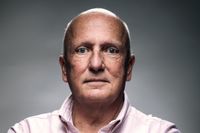
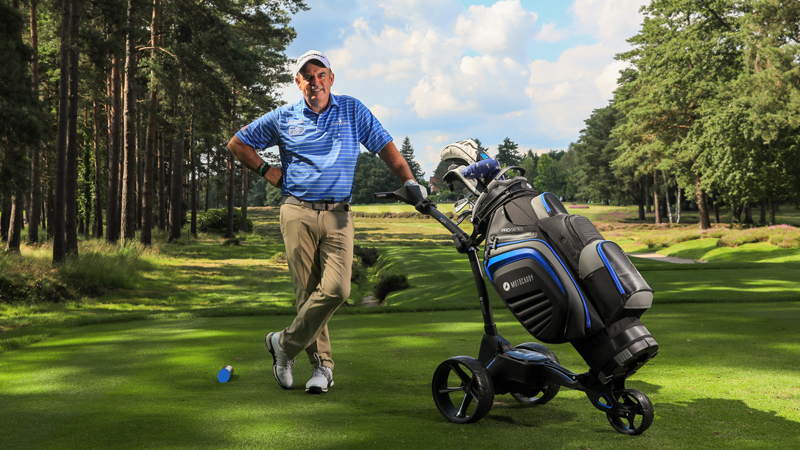
Subscribe to the Golf Monthly newsletter to stay up to date with all the latest tour news, equipment news, reviews, head-to-heads and buyer’s guides from our team of experienced experts.
You are now subscribed
Your newsletter sign-up was successful
Want to add more newsletters?

Delivered daily
Daily Newsletter
Sign up for all the latest tour news, gear reviews, head-to-heads and buyer’s guides plus features, tips from our top 50 coaches and rules advice from our expert team.

Once a week
Kick Point
Sign up to our free Kick Point newsletter, filled with the latest gear reviews and expert advice as well as the best deals we spot each week.

Once a week
Women's Golf Edit
Sign up to our free newsletter, filled with news, features, tips and best buys surrounding the world of women’s golf. If you’re a female golfer, you won’t want to miss out!
With just a few weeks to go until golf’s most eagerly anticipated contest, we catch up with former winning captain Paul McGinley
The Ryder Cup is on the horizon as Whistling Straits gets set to host the first match in three years after the pandemic forced the event to be postponed last year.
Europe will look to retain the trophy after the stunning 17.5-10.5 triumph at Le Golf National in 2018, whilst a strong US side seeks to win back-to-back home Ryder Cups for the first time since 1983.
McGinley had an illustrious Ryder Cup career as a player and a captain - holing the winning putt at The Belfry in 2002 and leading Europe to victory at Gleneagles in 2014.
Rob Smith visited McGinley at his home club, Sunningdale, to discuss the famous competition.
What are the emotions that you feel - both as a player and as a captain - on the first tee?
Very different! Two, very different emotions.
Subscribe to the Golf Monthly newsletter to stay up to date with all the latest tour news, equipment news, reviews, head-to-heads and buyer’s guides from our team of experienced experts.
As a player, it’s anticipation, it’s nervous energy, it’s adrenalin and excitement.
It’s generally a quieter mind, it’s a performance mindset that we are all versed in having, to get to that level.
Whereas as a captain, you’ve got a lot busier mind. You’re thinking on twelve different levels rather than just one.
You still have the nervous energy and anticipation, but it’s different.
I’m a great believer in prep. And I think that certainly what I tried to do was have everything organised.
And I promised myself that once the players left the first tee, my job stopped as a captain.
My job was not to influence play, my job was to put a strategy in place. To communicate with the players at night, to have them primed, and to create a platform for them to play their best golf.
But during play, I wasn’t going to interrupt the process that they have on a week-to-week basis with their caddy.
So I wanted to simplify it, and made a point of them not getting reads from people that they might have been partners with on greens because they’re obviously great players to be there in the first place, so they should do whatever they and their caddies do on week-to-week basis, simplify it and just do the same thing.
So once one role of the dice was done and play was under way, my job was to observe and plot and plan for the next role of the dice, but not to influence during play.
You’ve had an illustrious Ryder Cup career as a player and a captain - holing the winning putt at The Belfry in 2002 and leading Europe to victory at Gleneagles in 2014. What memory eclipses all others?
I think you have to say holing the winning putt!
The ecstasy of scoring the winning goal in the World Cup Final… I mean how can you cap that, even as a captain?
The win as a captain was very satisfactory, and there was a real sense of contentment, a real sense of job well done.
But in terms of pure, egotistical, adrenalin-fuelled excitement, then how can you not say holing a 10-foot putt to win the Ryder Cup with it all on the line!
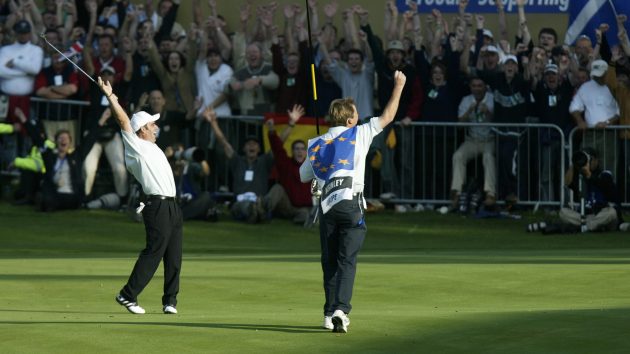
Going into this year’s contest at Whistling Straits, who do you think might be the key players for Europe?
It’s always the top players.
Guys like me, you know I came in and I was always sixth of twelve in the three teams that I played in, and I was not doing the donkey work.
The donkey work is done by the top players, and they are the ones who create the opportunity for players like me to come in and hole the winning putt.
To be quite frank and honest, they are normally up at the top of the order, they are creating the situation for the team so that someone can score the winning run or hole the winning putt like I did.
So it’s critical, to win any Ryder Cup, whether you are American or European, that your top players perform.
If you want to look for one reason over the years why the European team has been more successful than the Americans, then plain and simple, our top players create a bigger haul of points than the American top players.
If you look at the current world rankings, the Americans are doing very well and Europe only has a couple of players in the Top 10. What is your prediction for how things will go this year?
The world rankings are based on a 2-year window of playing 72-hole events.
The Ryder Cup is based on a 3-day window, playing foursomes, fourball and singles competition. The dynamics are very, very different.
It’s not apples with apples.
If you’re a data scientist, you’re throwing that out of the window. But what you are looking for is form.
You’re looking for form with some good tactics and strategy, and clear leadership from the captaincy.
Once you have those in place, that’s what you want more than anything.
The Americans always go into the Ryder Cup with better world ranking points than we do.
If the Ryder Cup was played over two years, and it was played over 72-hole events, then of course you would say they are going to be huge favourites.
But the dynamics are very different and it’s not a comparable data analysis.
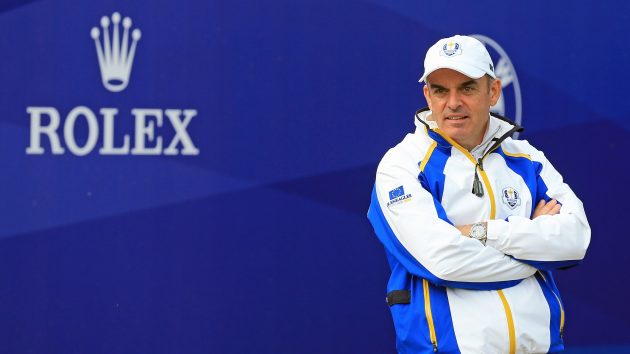
Finally, the event has become so huge and it also creates huge emotion and spectator involvement. Is it too big, or is it ok?
No, it’s ok, it’s got a way to go yet.
It’s adrenalin, it’s fast-paced, it seems to happen quickly, it’s got emotion attached to it, patriotism attached to it, it’s got the underdog against the heavy favourite year-in, year-out, and it’s got all the dynamics you would look for in a sporting occasion.
Obviously we want to be monitoring things, but it certainly hasn’t got out of hand, and if it does look to go that way we seem to be quick to react and pull it back to where it should be.
I’m confident that we’ve got the right people in place to make sure that it doesn’t go off the rails.
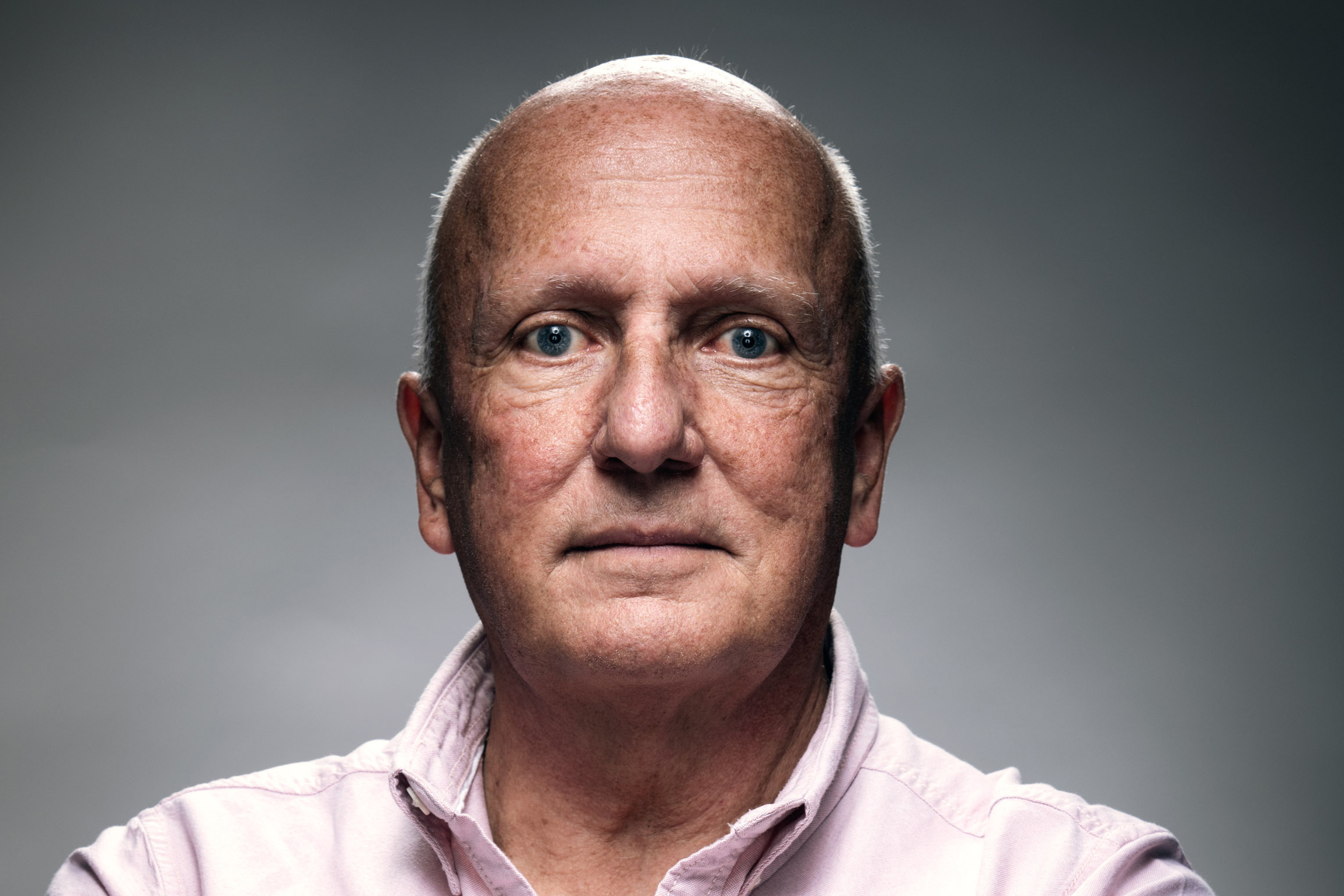
Rob has been playing golf for more than 45 years and been a contributing editor for Golf Monthly since 2012. He specialises in course reviews and travel, and has played nearly 1,300 courses in almost 50 countries. Last year, his tally was 77, 44 of them for the first time, which included his 1,000th in the UK&I. One of Rob's primary roles is helping to prepare the Top 100 Courses, of which he has played all, as well as the Next 100 where he is missing two in Scotland and four in Ireland. He has been a member of Tandridge for over 30 years where his handicap hovers around 14. You can contact him at r.smith896@btinternet.com.